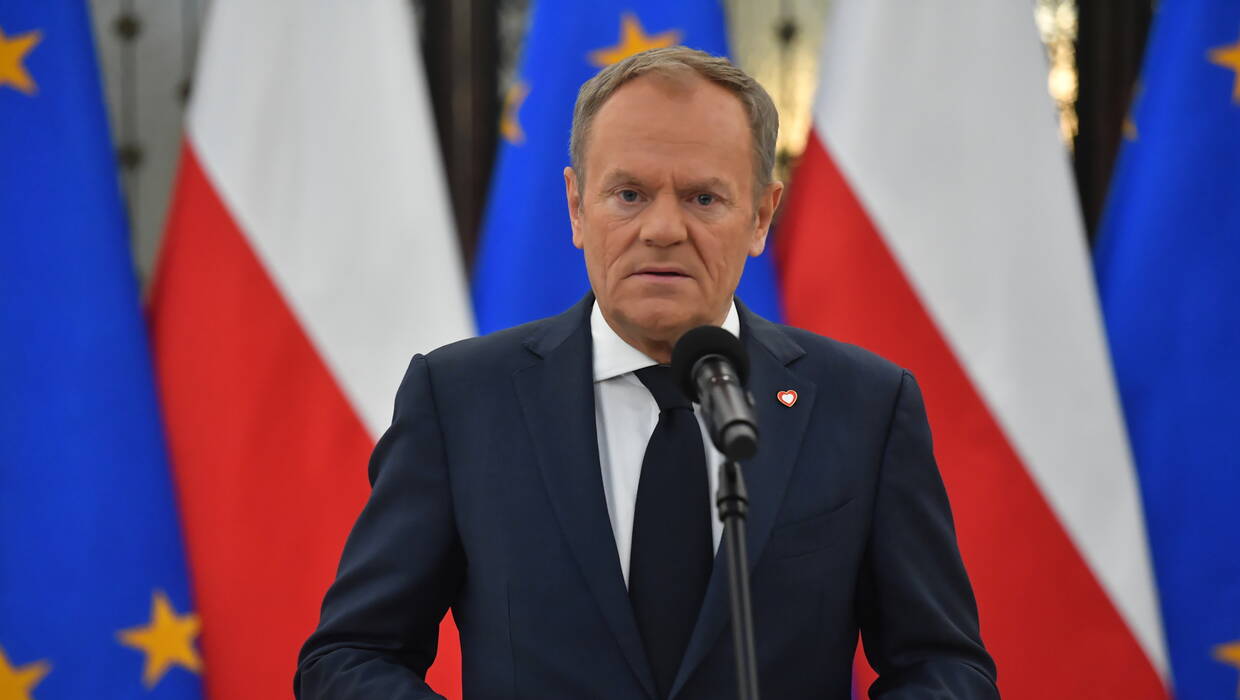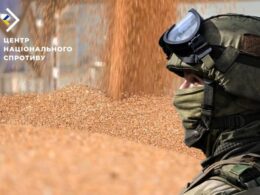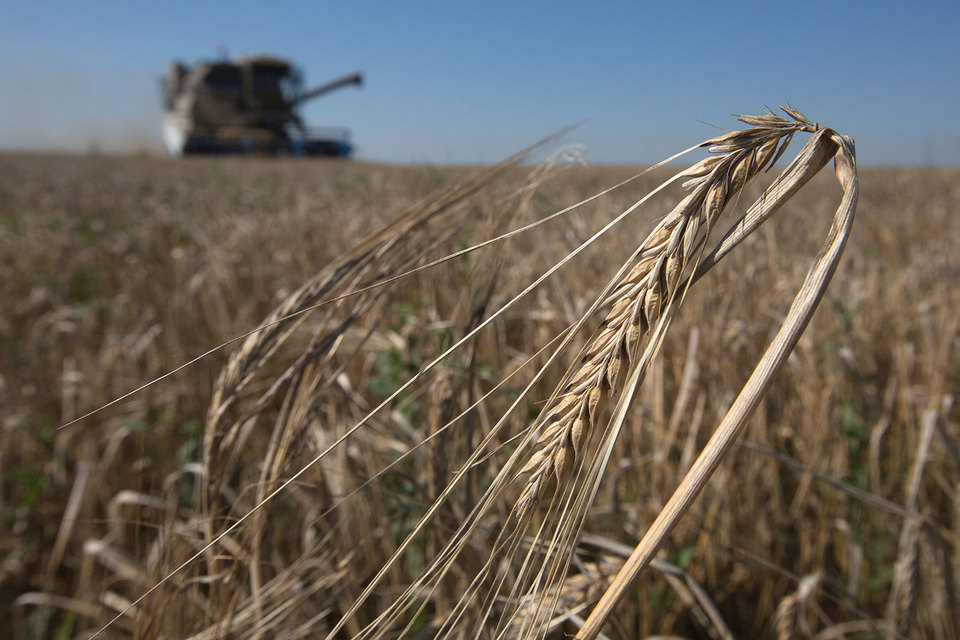After talks in Warsaw with his Ukrainian counterpart Denys Shmyhal, Polish Prime Minister Donald Tusk announced progress has been achieved on resolving problems surrounding agricultural imports and transportation between the two countries.
Speaking at a joint press conference with Shmyhal, Tusk noted that "we have taken a step forward in agriculture." He said, "We are seeking solutions that may not fully satisfy everyone, but will protect the core interests of Polish farmers and producers - and, on the other hand, Ukrainian ones. We are searching, and we are close to finding a solution."
Tusk added that they are "close to ensuring" that Ukrainian transit passing through Poland does not create "problems" for the Polish market. He discussed with Shmyhal potential EU-level solutions regarding Ukrainian agricultural imports that "may not delight the Ukrainian side." He stated, "But we are seeking methods that will not be painful for anyone. I am convinced that thanks to our approach, all parties will feel understood."
EU’s import restrictions can prolong the war, Ukraine’s agriculture minister says
The same applies to future road transportation, Tusk said. "Here too there was a conflict of interests. I am glad that we have found an understanding on the direction of our actions. It is about ensuring that the working opportunities for Polish and Ukrainian carriers are at the same level of requirements, so that there is no unfair competition."
He explained, "This means some effort on the Ukrainian side, some understanding and patience on the Polish side, but we are on the right track to ensuring that competition from Ukrainian carriers is not as painful as it has been so far for Polish carriers."
Polish MP: Poland, Ukraine nearing deal on grain imports amid farmer protests
Earlier, Tusk had expressed hope that Poland and Ukraine would reach an agreement on agricultural issues before the Warsaw meeting of the governments, but this did not happen. The government hopes that EU member state ambassadors will finally approve an extension of autonomous trade preferences for Ukraine on Friday, March 29.
Ukraine's State Border Guard Service reported that on March 28, Polish protesters suspended the blockade of truck traffic at the "Uhryniv-Dołhobyczów" checkpoint approximately until April 2.
Ukraine's stance
Ahead of the Tusk-Shmyhal talks, Ukrainian Deputy PM Olha Stefanishyna told European Pravda that as of now, Ukraine does not have a dialogue with Poland regarding unblocking the border.
Stefanishyna noted that the current compromise proposal contains two key changes that Ukraine criticizes. One would shorten the period for the EU to make decisions on introducing restrictions on Ukrainian agricultural imports, if grounds exist, to 14 days.
The second change proposes expanding the period the EU would consider statistics to potentially impose restrictions - taking into account figures from 2022-2023, as well as part of 2021 when Ukrainian agricultural imports were significantly lower.
Stefanishyna stressed that this agreement does not automatically mean the introduction of restrictions.
"And this is not the final decision yet. For now, the European Commission's principal position is that discussion can take place within the list of goods for which restrictions are possible - and this position is also supported by the Ukrainian side.
In particular, the expansion of the list of goods subject to possible restrictions should include oats, corn: flour and pellets, barley grits and bran, as well as processed cereals," the Deputy PM said.
She added that Ukraine "does not warmly welcome" the continued expansion of the list of products that could face restrictions. "However, we hope that a final decision will be made at the level of EU member state ambassadors on March 29, albeit with such changes," Stefanishyna noted.
Amid the prolonged EU dispute over Ukrainian agricultural imports, the Belgian presidency proposed a new compromise that finally received EU member state support on Wednesday evening. Poland and France had led efforts within the EU to restrict Ukrainian agricultural imports.
Many experts describe the current EU discussions on trade preferences for Kyiv as a harbinger of difficult negotiations regarding Ukraine's agricultural sector in the process of joining the European Union.
Read also:
- EU's import restrictions could prolong the war, Ukraine's agriculture minister says
- Politico: France joins Poland in push for further restrictions on Ukrainian agricultural imports
- EU to "impose tariffs" on Russian grain imports
- EU to increase checks on Ukrainian grain transport as farmer protests persist
- Polish farmer protesting Ukraine imports faces charges
- Polish farmers block Ukraine border, spill grain, as



